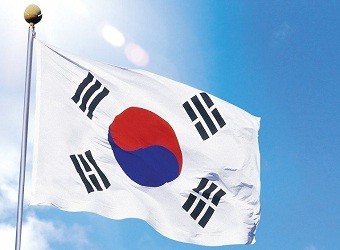South Korea does not aim to change its agreement on the deployment of a U.S. anti-missile system to protect against North Korea, in spite of a decision to delay its full installation, Seoul’s top national security adviser said on Friday.
Chung Eui-yong called the decision to delay installation of remaining launchers of the Terminal High Altitude Area Defence (THAAD) system, pending a review of its environmental impact, a domestic measure to ensure a democratic process.
“The decision to introduce THAAD was made to protect South Korea and the U.S. forces in South Korea from a growing threat from the North. We won’t take this decision lightly,” Chung told a news briefing.
He said South Korea would discuss ways to strengthen the joint defense against North Korea’s weapons programs during a summit between new South Korean President Moon Jae-in and U.S. President Donald Trump in late June.
Two launchers of a full six-launcher THAAD battery, as well as the system’s far-reaching radar, which China worries could upset the regional security balance, have already been installed on an old golf course in South Korea’s southeastern city of Seongju.
Moon’s office said on Wednesday that deployment of the four remaining launchers would be halted for the environmental assessment, which may take well over a year, according to a senior administration official.
Moon vowed in his election campaign to review the decision to deploy THAAD, which was made by his conservative predecessor, Park Geun-hye, greatly angering South Korea’s neighbor China, an important trading partner, and some domestic critics.
U.S. officials have sought to play down the impact on relations with South Korea, a long-time treaty ally where more than 28,000 troops are based, although a Pentagon spokesman made clear it would like to see the full battery installed.
“We believe considering the threat from North Korea, a full THAAD battery is the best addition to the defence of South Korea,” Commander Gary Ross said.
A senior official of the U.S. administration told Reuters that U.S. diplomats had sought clarification from South Korean officials as to whether the environmental review was a prelude for a rejection of the whole THAAD system, and were assured that South Korea planned to uphold its end of the agreement.
The issue was discussed by Trump, U.S. Defense Secretary Jim Mattis and Secretary of State Rex Tillerson at a White House meeting on Thursday.
A State Department spokeswoman, Katina Adams, said the decision to deploy THAAD was an essential response to North Korea’s fast-developing nuclear and missiles programs, which has seen dozens of launches and two bomb tests since the start of last year.
“Each launch … further demonstrates the rationale and necessity of the U.S.-(South Korea) Alliance agreement to deploy THAAD,” she said.
The State Department said U.S. Under Secretary of State Thomas Shannon would visit Seoul from Tuesday to Thursday next week after a stop in Tokyo on Monday to discuss responses to North Korea.
North Korean leader Kim Jong Un has spoken of his aim to develop an intercontinental ballistic missile capable of hitting the mainland United States with a nuclear weapon, presenting Trump with perhaps his most pressing security problem and underscoring the need for close cooperation with Seoul.
Nevertheless, Trump, who campaigned on a populist “America First” platform, risked increased tensions with the U.S. ally when he told Reuters in an interview just before Moon’s election he would either renegotiate or terminate a “horrible” free trade deal with South Korea and said Seoul should pay for THAAD, which he priced at $1 billion.
Source: Reuters
